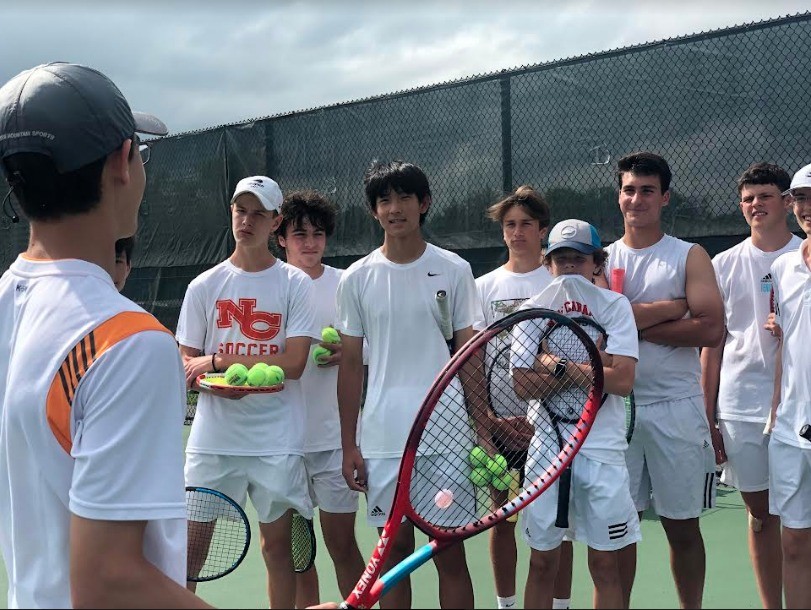Annika Khurana, Executive Editor
@akhuranacourant
The captains’ leadership seminar, run by Athletic Director Jay Egan and school psychologist Sandra Warkentin, took place during RAM time this year. According to Ms. Warkentin, the program started about eight years ago in order to create effective leadership on sports teams and in the school as a whole. “Mr. Egan revamped the whole captains program and made it less of a popularity contest and more of who shows real leadership on the team,” Ms. Warkentin said.
The seminar consists of six meetings during a season. “The most important role of a captain on a team is to be the liaison between the team and the head coach,” Mr. Egan said. “At the beginning of those sessions, we work on having [the captains]think about their role and reflect on the leaders they had in the previous years.”
Lessons are roughly 20 minutes long and are quite concentrated. Exercises have included writing about legacies as a captain, roleplaying for potential scenarios, and activities with the Athletic Code of Conduct. “[The activities] open up conversations about where [the captains]see things in their team they need to improve upon or things they’re very proud of,” Ms. Warkentin said.
According to Ms. Warkentin, the program’s biggest aim aside from fostering successful leadership is to open up communication between different sports teams. “We’re trying to help [the captains]learn to problem solve in a collaborative way and respect each other’s sports or attend each other’s events,” Ms. Warkentin said.
Achieving a balance between individual goals and team goals is key when it comes to leading a team. “If you’re going to be a team captain, you have to have enough energy and enthusiasm to want to help other people be able to achieve their goals after you already achieved yours,” Mr. Egan said.
Oftentimes, the quality of leadership on a team can make or break someone’s interest in the sport. “I wanted to become a captain because I know how important it is as an underclassman to have good captains,” senior track captain Chris Bopp said. “Having a good captain can really increase your interest in a sport while having a bad one can cause you to lose interest completely,”
According to Chris, managing such a large team was initially challenging; however, splitting up duties has made the process easier. “We have captains specific to long-distance, middle distance, sprinting and throwing,” he said. “This makes it easy for us to split up responsibilities because each captain is responsible for leading their events each practice.”
In contrast, the softball team has chosen to forgo the traditional captain system in order to eliminate seniority. “If you’re a freshman, you can start over a senior or junior,” senior Lauren Mellas said. “It’s about who is best able to help the team win and get the job done.”
Even without captains, the team functions similarly to other sports teams and allows underclassmen to make a place for themselves. “Seniors plan team dinners and bonding events and all the underclassmen help with senior night. It allows for the underclassmen to step up and have a voice,” Lauren said. “It won’t be taken personally if they give upperclassmen advice on how to fix their swing or how they should approach a ground ball differently.”
Overall, the role of a captain on a high school sports team pertains to the quality of team experiences and requires the drive to help others be successful. “Being a captain is not necessarily a reward for somebody for being on a team for three years and a captain doesn’t necessarily have to be the best player,” Mr. Egan said. “They do have to be someone who cares about doing things for others.”




